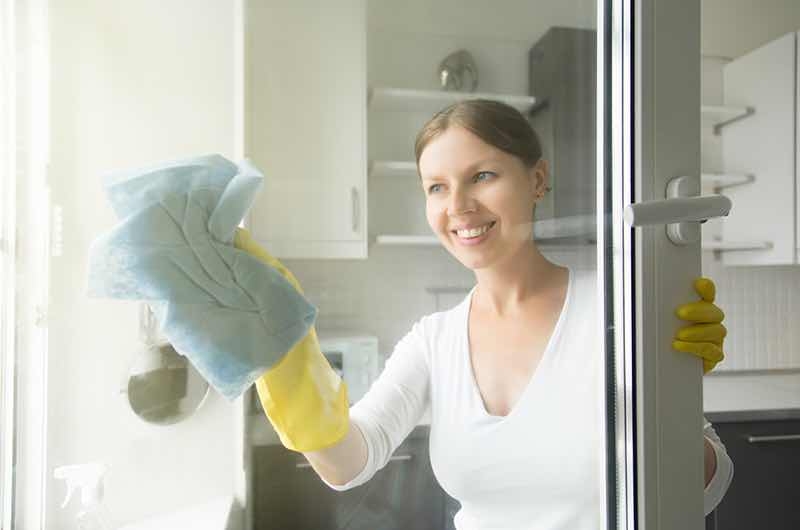Did you know you can use vinegar to get rid of stubborn stains? Researchers prove that this liquid is “worth” thousands of cleaning products that are commercially available. Vinegar is used everywhere: from washing windows to disinfecting fruits.
There are also quite a few who use it in dishwashers, when washing clothes, and even scientists use acid to disinfect laboratories, according to the BBC investigation. What makes it so useful? Vinegar is produced through a two-stage fermentation process.
First, yeast cells feed on any carbohydrates that convert their sugars into alcohol and carbon dioxide. This alcohol is then exposed to oxygen and fermented again, this time with Acetobacter instead of yeast, and the alcohol liquid turns into a mixture of water and acetic acid. This is the same phenomenon that gives wine a sour taste if the bottle has been left open for several hours.
When it comes to cleaning, perhaps vinegar’s most useful property is its acidity—mild enough not to damage fabrics and surfaces, but strong enough to get rid of stubborn stains.
This particular household product can have a pH as low as 2.2—about 10 times more acidic than the average soft drink. Another advantage of vinegar is its antimicrobial properties.
Pickling, an ancient method of preserving food by creating an “inhospitable environment for germs and bacteria”, used salt and vinegar. Cleaning with vinegar is based on the same logic. Studies have shown that acid can kill a number of pathogens, including E. coli. The product has been found to be effective for a wide range of applications, from cleaning dentures to disinfecting fruits and vegetables.
Another popular cleaning technique is to apply vinegar to the surface to be cleaned, then sprinkle with baking soda to create a lather. In this case, as a result of the reaction, bubbles of water and carbon dioxide are formed, which interact and contribute to the natural destruction of the dirt. (By the way, “the stains left by your pet on the floor”, that is, the smell from the animal, perfectly eliminates vinegar and soda.).
Can vinegar be used to clean electronic devices? Vinegar is not recommended for cleaning the inside of electronic devices because the acid can corrode metal parts. However, the exterior of laptops and computer equipment can be safely wiped with a mixture of distilled water and vinegar sprayed onto a microfiber cloth—spray onto the cloth, not the electrical appliance, and do not plug or turn it back on until the liquid has evaporated from the surface. In this way, you can even clean touch screens on laptops and phones, which are usually resistant to harsher alcohol-based cleaners.
Can vinegar remove odors? The mild acid also reacts easily with foul-smelling alkaline chemicals such as ammonia, which imparts a strong odor to concentrated urine, and trimethylamine, which has a strong fishy odor. Some cleaners recommend boiling a pot of vinegar to get rid of strong odors by turning the acetic acid into a vapor that more easily reacts with any volatile compounds in the room. However, concentrated acetic acid vapors can also irritate the nose and eyes. A strong odor left by fish, such as on a cutting board or dish, can be neutralized by rinsing it with vinegar.
The acid reacts with the “strong-smelling compounds” of the fish oil to eliminate the bad odor. However, lemon juice, which contains citric acid instead of acetic acid, is often recommended as a “tastier” alternative, especially when it comes to getting fishy smells off your hands.







More Stories
Easter: strange Easter eggs and souvlaki lamps
The Thirty Years of Olive War is over
Raisins: benefits of eating before bed